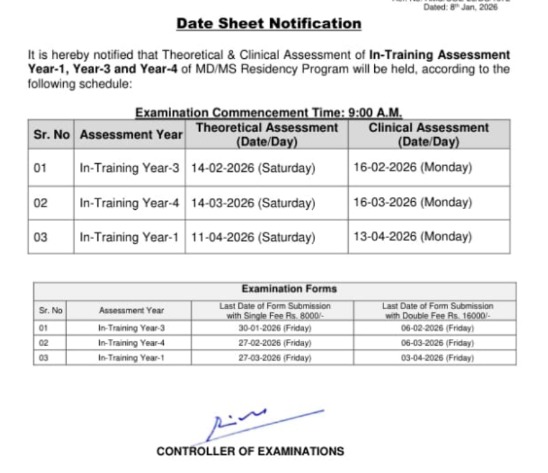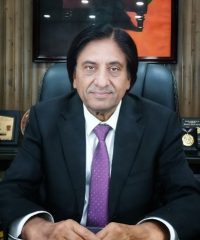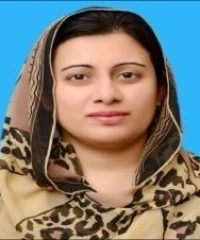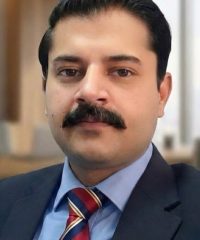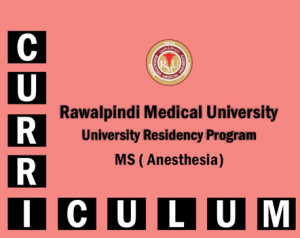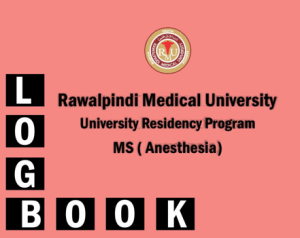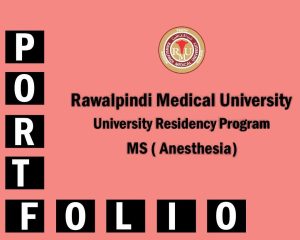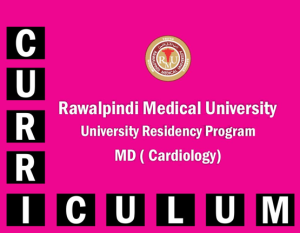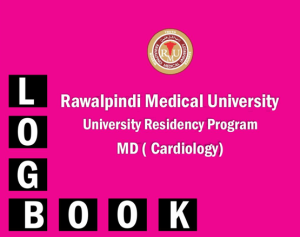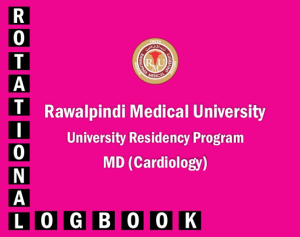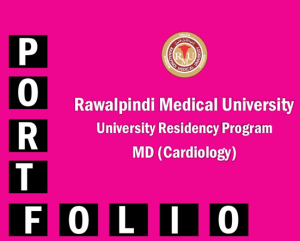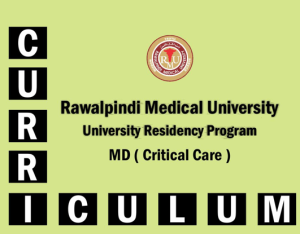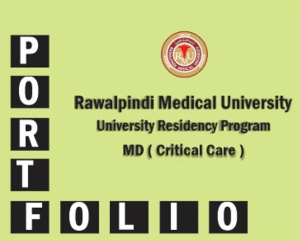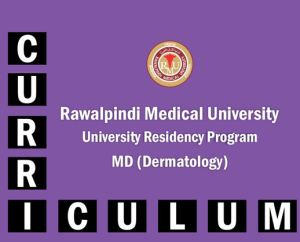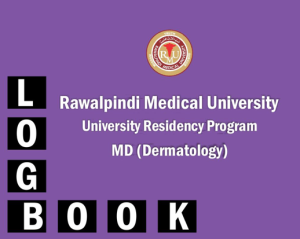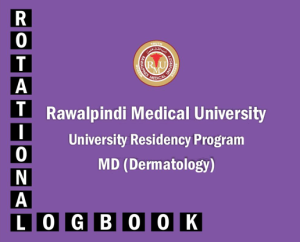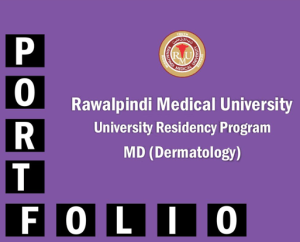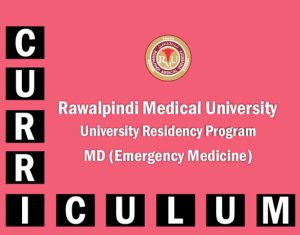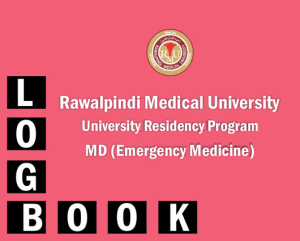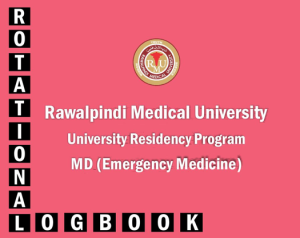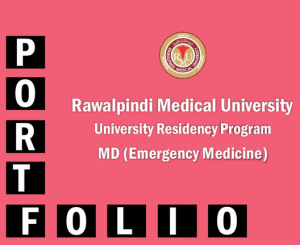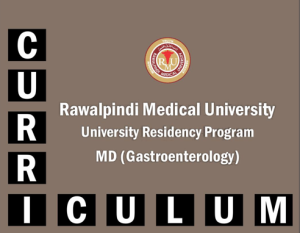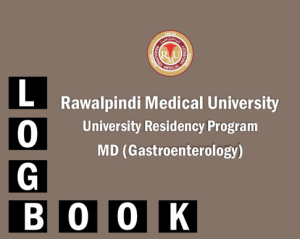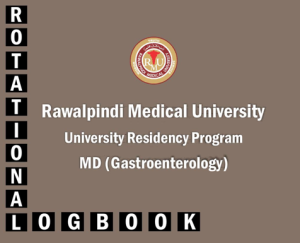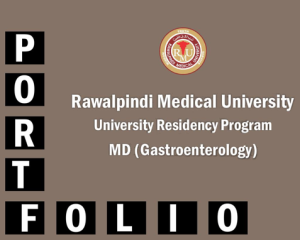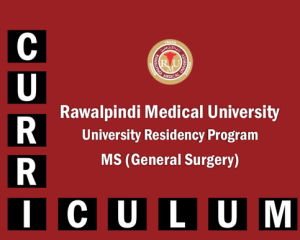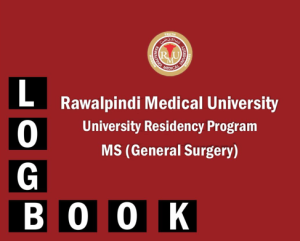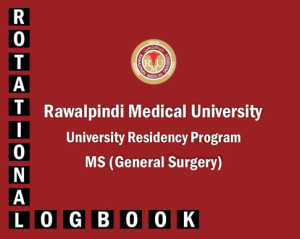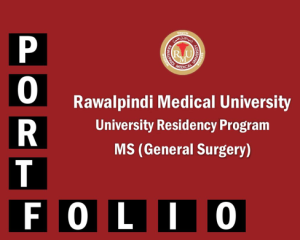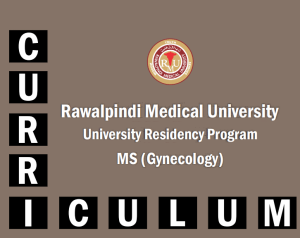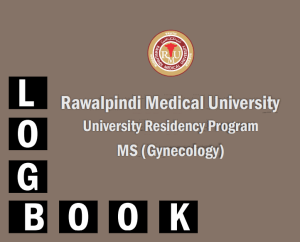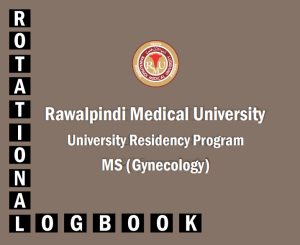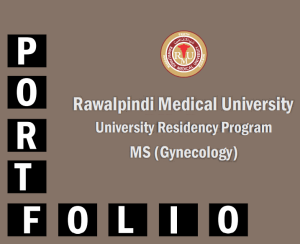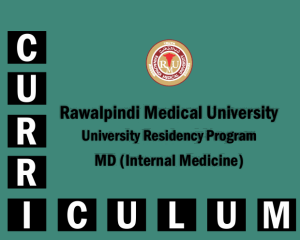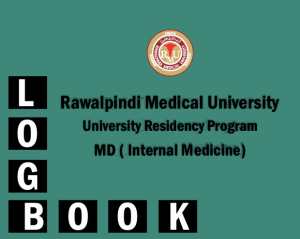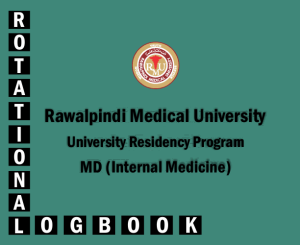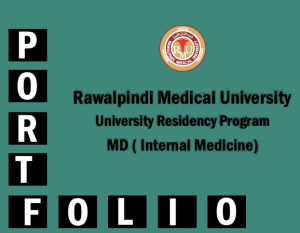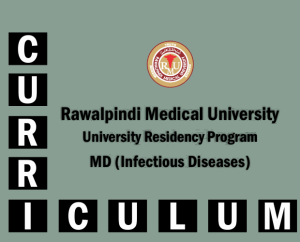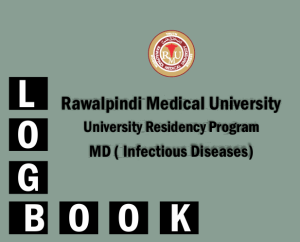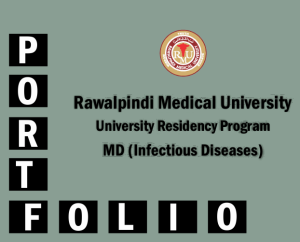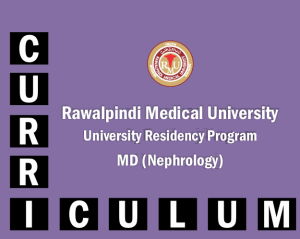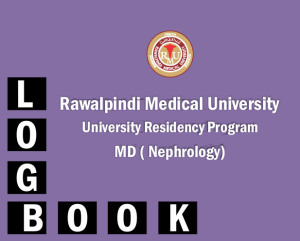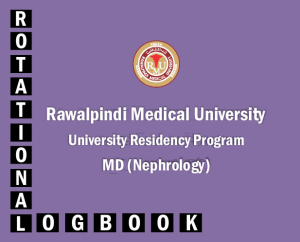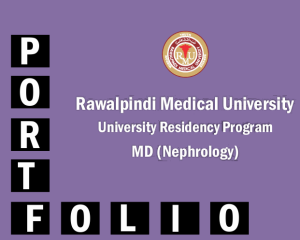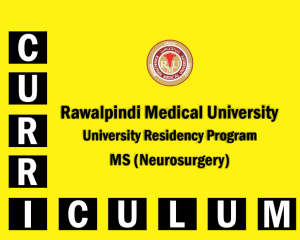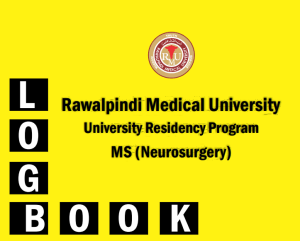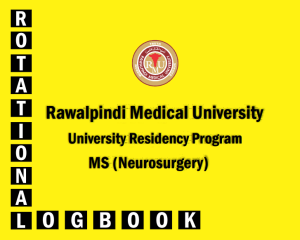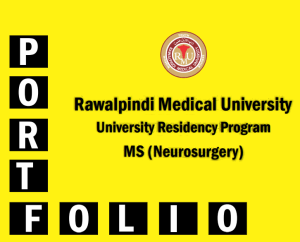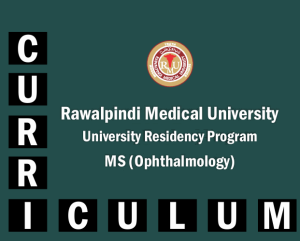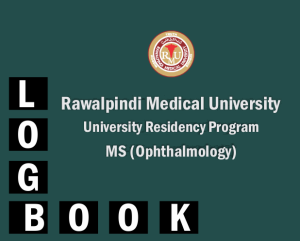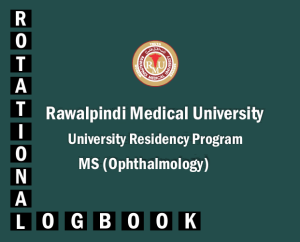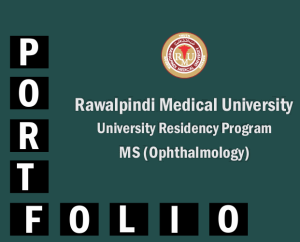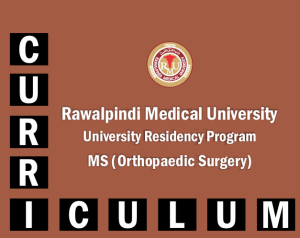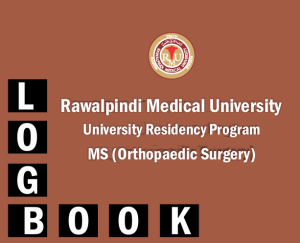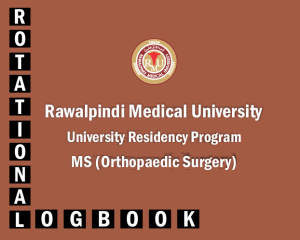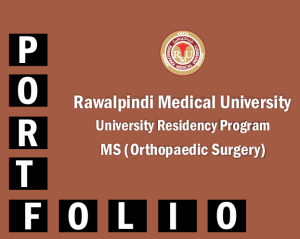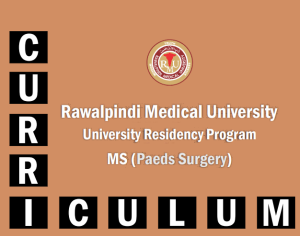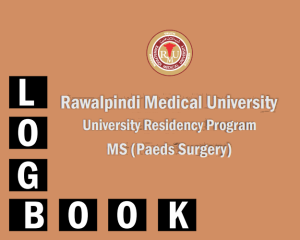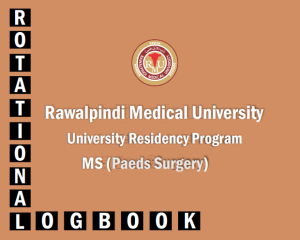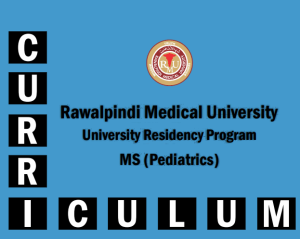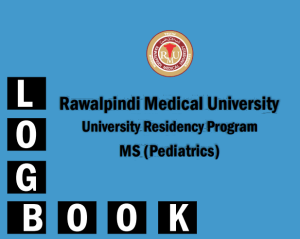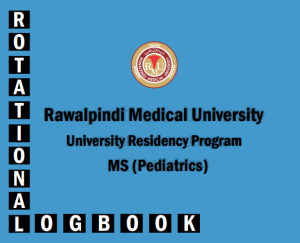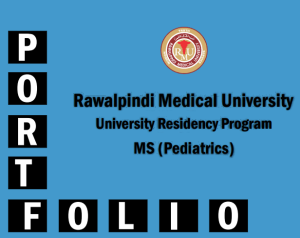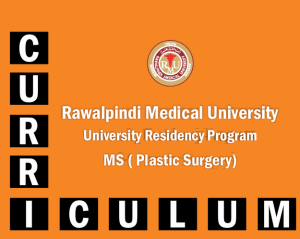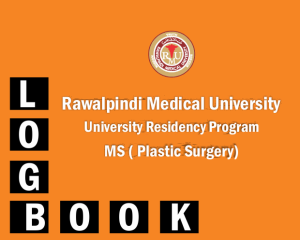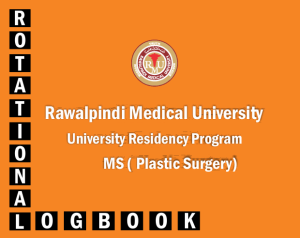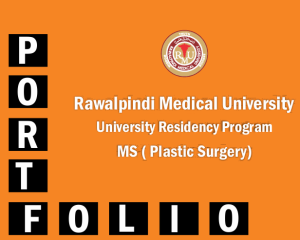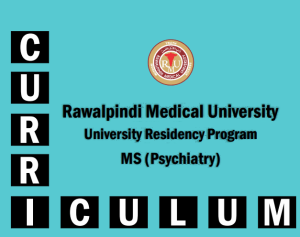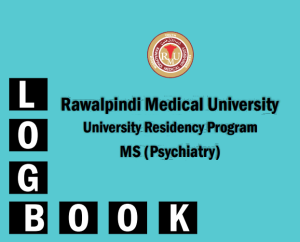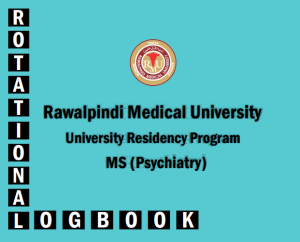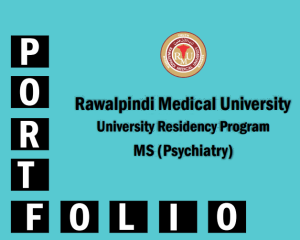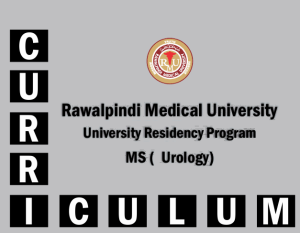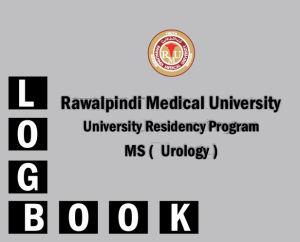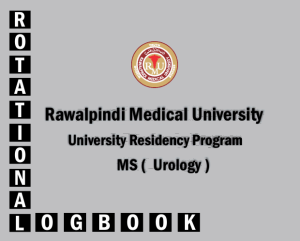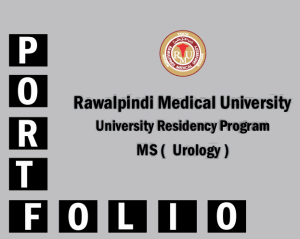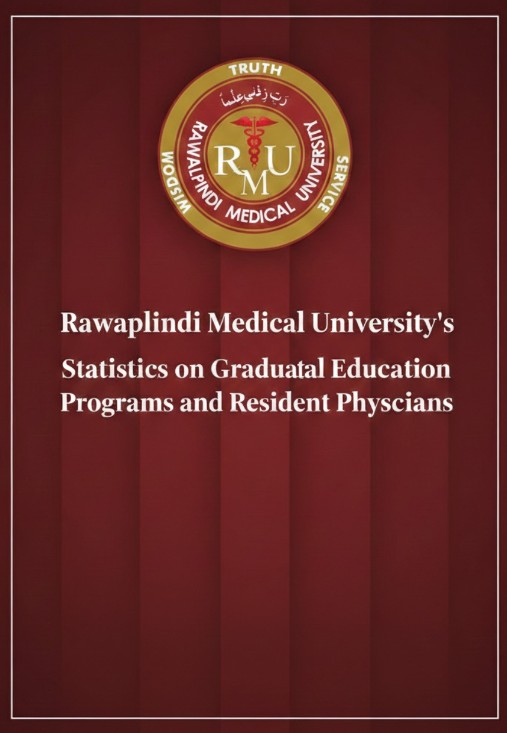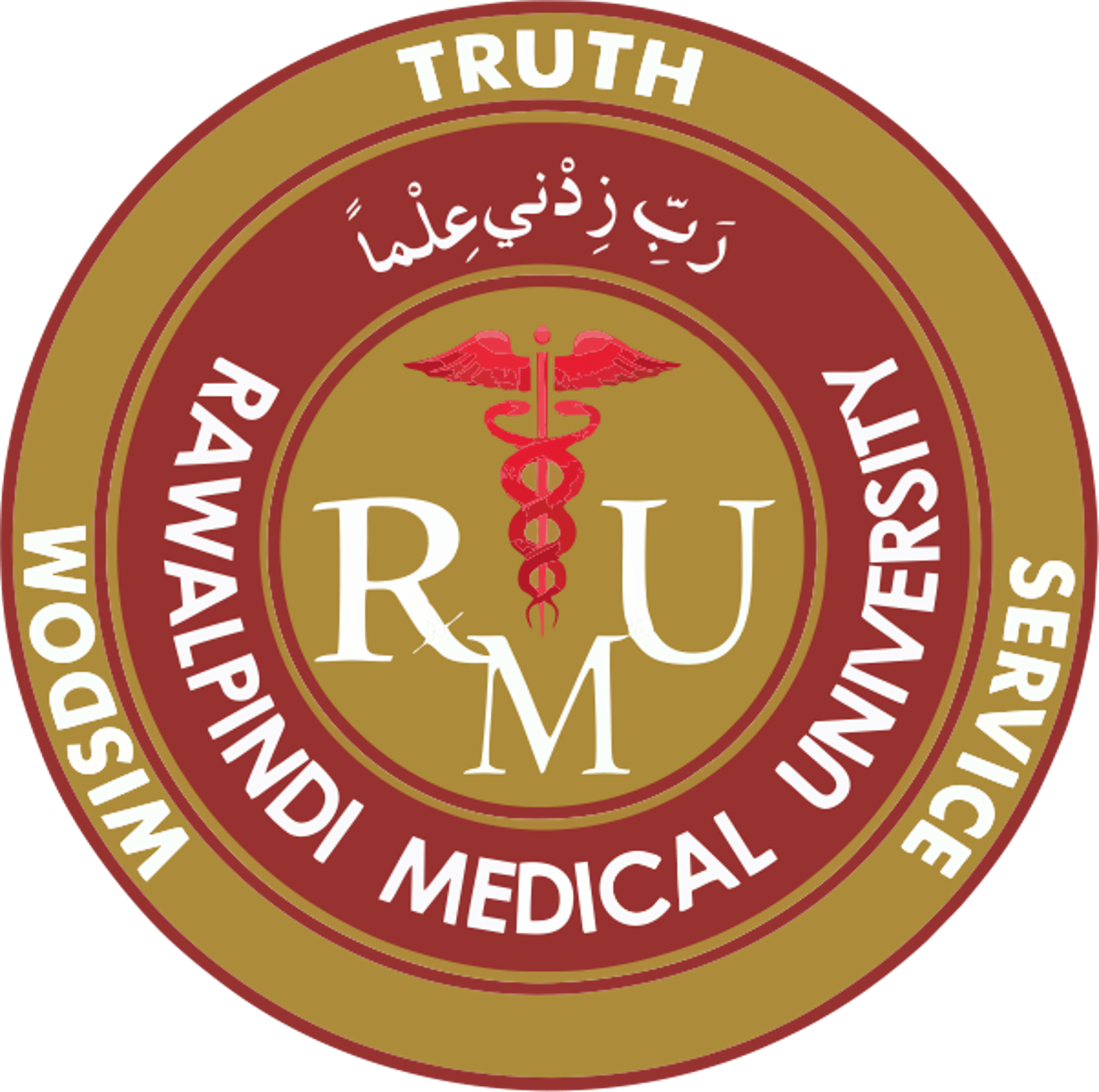University Residency Program (URP)
Overview
Following the upgradation of Rawalpindi Medical College to Rawalpindi Medical University on May 5, 2017, the University launched its Residency Program to offer rigorous and dynamic postgraduate degree programs. These structured postgraduate training programs are designed to produce competent, ethical, and research-oriented medical specialists who meet both national and international standards
Rawalpindi Medical University provides its postgraduate residents and distinguished faculty with exceptional opportunities for scholarships, academic linkages, and collaborations with world-renowned universities engaged in high-impact research. Faculty members actively participate in training and research initiatives in partnership with institutions in technologically advanced countries.
The residency training is conducted in RMU’s affiliated teaching hospitals, which include Holy Family Hospital, Benazir Bhutto Hospital, and District Headquarters Hospital Rawalpindi. These hospitals provide a rich clinical learning environment with modern diagnostic and treatment facilities, diverse patient exposure, and supervised mentorship by experienced faculty. The University Residency Program at RMU continues to grow in excellence and scope, reflecting the university’s dedication to producing future leaders in medicine and surgery who are equipped to serve both locally and internationally.
We are confident that joining Rawalpindi Medical University and enrolling in the University Residency Program will empower the next generation of medical professionals to achieve new horizons of excellence and innovation.
Vision
To disseminate best services and bring innovation in treatment and preventive strategies through research that spans fundamental discovery, health care services and knowledge mobilization
Mission
To provide residents with a comprehensive structured education and training in both basic and clinical sciences that will enable the resident to become competent and proficient.
Residency Induction Criteria
Rawalpindi Medical University (RMU) conducts its postgraduate residency inductions in accordance with the Centralized Induction Policy of the Government of the Punjab. The process ensures transparency, merit-based selection, and uniform standards across all teaching institutions affiliated with the Specialized Healthcare and Medical Education (SHC&ME) Department.
General Guidelines
- The Joint Centralized Admission Test (JCAT) Part-I Examination for MD/MS/MDS will be held in the months of February, April, August and October in a calendar year
- The induction in MD/MS/MDS will be open in the month of January and July in a calendar year
- The Eligibility / Qualification criteria / Application procedure will be same for Local/Foreigner/out of station student.
Eligibility Criteria
- JCAT Part-I passed
- MBBS or equivalent Medical Qualification recognized by the PM&DC
- Valid Registration by the PM&DC
- Experience (at least one year house job)
RMU ACGME Model


Objectives
- To provide structured postgraduate clinical training aligned with national and international standards.
- To develop competent specialists with strong clinical, diagnostic, and decision-making skills.
- To promote evidence-based practice and lifelong learning among residents.
- To foster professionalism, ethics, and compassionate patient-centered care.
- To encourage residents’ active participation in research and scholarly activities.
- To strengthen leadership, teamwork, and teaching abilities in future healthcare leaders.
- To contribute to the health system by producing specialists prepared for academic, clinical, and public health roles.
Core Competencies
The residents are facilitated in acquisition of these competencies by mandatory workshops, rotations, annual lectures, 6 monthly TOACS / 360 degree evaluations and short intensive preparatory courses.
Medical Knowledge
Professionalism
Patient Care
Practice Based Learning & Improvement
System Based Practice
Interpersonal & Communication skills
Research
Program Overview
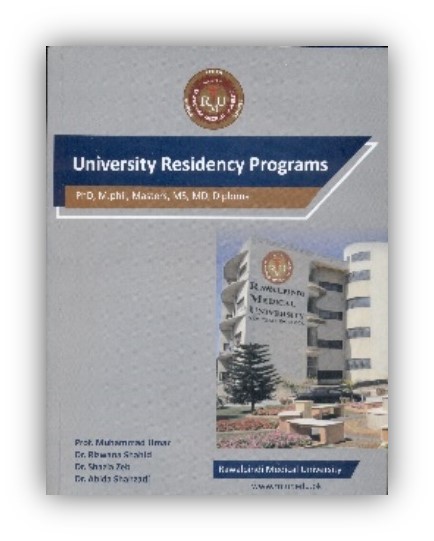
University Residency Programs / 76
Dr. Rizwana Shaid
Assistant Professor
Department of Community Medicine
March 2019
This book provides the academic guidelines for all the residents of RMU. Section-I introduces various components, boards, cells and departments of RMU. Section- II briefs about the University residency program including mission & vision, objectives, nomenclature, ongoing and proposed programs, curriculum, residents appointments and examinations. Section-III details about teaching training and assessment strategies with special focus on 360^ evaluation. Section-IV gives details regarding research, synopsis and thesis writing and publication modalities.

University Residency Program Director Guide 2018 / 77
Dr. Rizwana Shaid
Assistant Professor
Department of Community Medicine
September 2018
This book is a comprehensive over view of all standard rules and regulations to be abide by post graduate trainees. This guide focuses on the duties of all faculty members along with salient healthcare personals engaged in training program. This document also throughs light on evaluation of trainees, faculty and whole training process not only by outlining the key points but also by the displaying the feedback proforma strategically design to meet the purpose.

Residency Program Trainee’s Guide / 42
Prof.Dr. Muhammad Umar
Vice Chancellor Rawalpindi Medical University
Prof. Bushra Khaar
Professor of Gastroenterology (Emeritus)
March 2018
This is the residency program guide book for trainees as part of structured clinical training program which includes standard operating procedures for patient care including indoor, out door, emergency and intensive care services. It also includes training program over view in medicine containing structuring of short cases, long cases, Journal club, ECG & Radiology tutorial, problem case presentation, interactive sessions, seminar, mandatory workshops , dissertation, logbook, portfolio and evaluation strategies.
Competency based Curricula
Anesthesiology
The MS Anesthesia program at Rawalpindi Medical University is a vital specialty training that prepares residents to provide perioperative care, pain management, and critical care services. The program covers general and regional anesthesia, intensive care, preoperative assessment, and management of complex surgical patients. Residents gain expertise in airway management, hemodynamic monitoring, mechanical ventilation, and acute pain services. They undergo clinical rotations in operating rooms, ICUs, emergency departments, and pain clinics. Emphasis is placed on simulation-based learning, crisis management, and multidisciplinary teamwork. Graduates are prepared to become skilled anesthesiologists capable of handling surgical, trauma, obstetric, and ICU cases with confidence and precision.
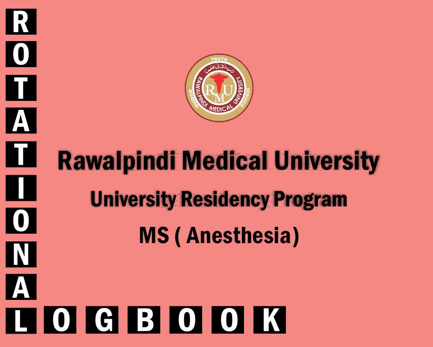
Rotational Logbook
Cardiology
RMU’s MD Cardiology program is a robust, research-oriented and clinically rich training track tailored to produce future leaders in cardiovascular medicine. It encompasses intensive training in all aspects of cardiology including non-invasive and invasive diagnostics, interventional procedures, and management of acute and chronic cardiac diseases. The program features rotations in echocardiography, cardiac catheterization labs, electrophysiology, and cardiac intensive care units. Residents actively participate in academic discussions, case conferences, journal clubs, and are encouraged to contribute to cardiovascular research. The high volume of patients and the diversity of cardiac pathologies encountered in RMU-affiliated hospitals provide an excellent learning environment. Graduates emerge with strong clinical acumen and technical skills suited for tertiary care centers or academic cardiology roles.
Critical Care
The MD in Critical Care Medicine program at RMU is tailored to develop specialists who are proficient in managing critically ill patients in intensive care units (ICUs). This demanding and dynamic program focuses on the management of multi-organ failure, complex ventilation strategies, hemodynamic monitoring, and the use of advanced life support technologies. Residents are trained in evidence-based critical care, procedural skills such as central line insertion, intubation, and advanced airway management, and in ethical decision-making in life-threatening situations. The program includes rotations in medical, surgical, and cardiac ICUs and is supported by faculty with extensive experience in intensive care. With the increasing demand for skilled intensivists, RMU’s Critical Care MD graduates are well-equipped to handle high-pressure environments in tertiary hospitals and lead ICU teams.
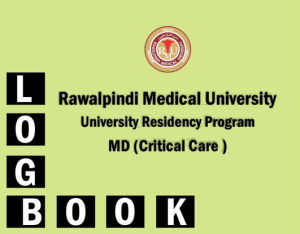
Logbook
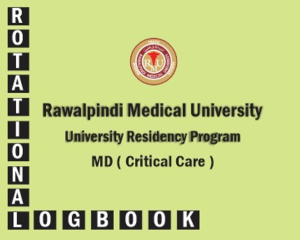
Rotational Logbook
Dermatology
The MD Dermatology program at RMU is designed to train physicians in the diagnosis and management of skin, hair, and nail disorders with an emphasis on both clinical dermatology and dermatopathology. The program includes rigorous academic coursework, clinical rotations, and hands-on procedural training in dermatological surgery, laser therapy, and cosmetic dermatology. Residents are mentored by experienced dermatologists and encouraged to participate in research and community outreach programs related to skin health. The curriculum integrates modern diagnostic techniques such as dermoscopy and patch testing, ensuring graduates are proficient in delivering holistic dermatologic care. With a growing burden of skin diseases in Pakistan, the program aims to produce specialists capable of addressing both common and rare dermatological conditions with confidence and competence.
Emergency Medicine
Rawalpindi Medical University’s MD Emergency Medicine program provides rigorous training to equip physicians with the ability to rapidly assess, diagnose, and manage acute medical, surgical, and trauma-related emergencies. The curriculum emphasizes clinical decision-making, resuscitation, procedural skills, and disaster preparedness. Residents rotate through adult and pediatric emergency departments, trauma units, and pre-hospital emergency care systems. The program fosters a culture of rapid thinking, teamwork, and resilience. It also integrates training in toxicology, critical care, and ultrasound for emergency settings. Graduates emerge as confident emergency physicians, capable of leading emergency departments and contributing to the advancement of emergency medicine in Pakistan’s evolving healthcare landscape.
Gastroenterology
Rawalpindi Medical University’s MD Gastroenterology program is structured to train specialists in the management of gastrointestinal, hepatic, pancreatic, and biliary diseases. The program integrates clinical practice with endoscopic training including upper and lower GI endoscopy, ERCP, and advanced therapeutic procedures. Residents gain experience in managing conditions such as hepatitis, liver cirrhosis, IBD, and GI cancers. They are also exposed to hepatology clinics and liver transplant follow-up. Research and teaching are integral to the program, enabling graduates to pursue careers in academic gastroenterology, clinical practice, and policy development related to digestive health.
General Surgery
The MS General Surgery program at Rawalpindi Medical University is a structured and intensive surgical training program designed to develop competent, confident, and ethical general surgeons. This program combines hands-on operative experience with academic excellence and focuses on the principles of surgical pathology, preoperative and postoperative care, and modern surgical techniques. Residents are trained in a wide variety of procedures involving the abdomen, breast, thyroid, vascular system, and trauma management. They gain exposure to both elective and emergency surgeries and are expected to perform increasing levels of responsibility under expert supervision. The program fosters critical thinking, evidence-based practice, and research in surgical science. Graduates emerge as capable general surgeons ready to serve in tertiary care hospitals, teaching institutions, and rural outreach settings, addressing the surgical needs of the country with precision and compassion.
Gynecology
Rawalpindi Medical University’s MS Gynecology and Obstetrics program offers a comprehensive blend of clinical training and academic learning to prepare specialists in women’s reproductive health. The program covers antenatal, intrapartum, and postnatal care along with the diagnosis and surgical management of gynecological conditions. Residents are trained in procedures including cesarean sections, hysterectomies, laparoscopy, infertility treatments, and high-risk obstetric care. The curriculum emphasizes maternal-fetal medicine, family planning, reproductive endocrinology, and oncology. Trainees actively participate in labor rooms, operation theatres, and outpatient clinics while also engaging in academic seminars and audits. Graduates of the program are well-positioned to serve in maternal and reproductive health roles, contribute to women’s health advocacy, and take leadership positions in healthcare delivery.
Internal Medicine
Rawalpindi Medical University offers a comprehensive MD in Internal Medicine program that equips trainees with in-depth knowledge and hands-on clinical skills necessary to diagnose, treat, and manage a wide range of adult diseases. This program emphasizes a multidisciplinary approach, integrating evidence-based medicine with patient-centered care. Residents receive extensive training through structured rotations in sub-specialties such as cardiology, gastroenterology, endocrinology, and infectious diseases. The program focuses on building diagnostic acumen, clinical reasoning, and leadership in medical teams, making graduates capable of handling complex cases in both inpatient and outpatient settings. With access to RMU’s affiliated tertiary hospitals, residents are exposed to a diverse patient population and cutting-edge medical technology that prepares them for independent clinical practice or academic careers.
Infectious Diseases
The MD Infectious Diseases program at RMU is designed to produce highly skilled specialists capable of addressing the burden of infectious diseases prevalent in Pakistan and globally. The program includes training in the diagnosis and management of bacterial, viral, fungal, and parasitic infections, including emerging and re-emerging infections such as COVID-19, tuberculosis, dengue, and antimicrobial resistance. Residents receive training in infection control practices, antimicrobial stewardship, and epidemiology. They are also involved in outbreak investigations, research, and teaching. With a strong public health component, the program prepares graduates to work in clinical, academic, and policy-making roles in infection prevention and control.
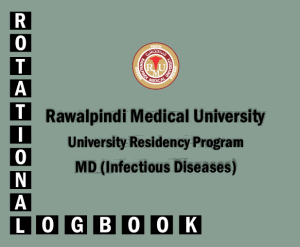
Rotational Logbook
Nephrology
RMU’s MD Nephrology program offers specialized training in kidney diseases, dialysis, and kidney transplantation. The curriculum includes detailed exposure to the diagnosis and management of acute kidney injury, chronic kidney disease, glomerulonephritis, and electrolyte disturbances. Trainees rotate through nephrology wards, dialysis centers, and transplant units. The program emphasizes procedural skills such as dialysis catheter placement and renal biopsies, and encourages participation in nephrology research. With the increasing incidence of renal disease in the country, RMU’s MD Nephrology graduates are trained to meet the needs of this growing patient population and lead advancements in renal care delivery.
Neurosurgery
The MS Neurosurgery program at RMU is a rigorous and high-stakes training pathway for managing disorders of the brain, spine, and peripheral nerves. The program offers in-depth clinical and operative exposure to neurotrauma, brain tumors, spinal surgeries, pediatric neurosurgery, and vascular neurosurgery. Residents train in neurosurgical ICUs, operating rooms, and diagnostic units with advanced imaging and neuro-navigation systems. The curriculum fosters proficiency in both emergency and elective neurosurgical interventions and encourages involvement in research and innovation. With mentorship from experienced neurosurgeons, residents develop the technical skill and critical thinking required to manage complex neurological conditions. Graduates of this program are positioned to be leaders in neurosurgical care and academic medicine.
Opthalmology
RMU’s MS Ophthalmology program trains residents in the comprehensive medical and surgical care of eye disorders. The program emphasizes clinical competence in diagnosing and treating conditions such as cataracts, glaucoma, retinal diseases, corneal disorders, and ocular trauma. Residents receive practical training in slit lamp examination, fundus evaluation, refraction, and surgical procedures including phacoemulsification, trabeculectomy, and vitrectomy. The curriculum incorporates ocular imaging, electrophysiology, and community ophthalmology. Trainees are also involved in outreach camps to address preventable blindness and provide vision care in underserved communities. With a focus on precision, ethics, and empathy, RMU ophthalmology graduates are prepared to deliver advanced eye care and pursue further specialization or academic careers.
Orthopaedic Surgery
The MS Orthopedics program at RMU is a dynamic and skill-intensive training pathway that prepares residents to diagnose and manage musculoskeletal disorders through both operative and non-operative means. The program encompasses trauma care, joint reconstruction, pediatric orthopedics, sports injuries, spine surgery, and orthopedic oncology. Residents undergo rigorous clinical training with extensive exposure to emergency orthopedics, fracture management, and elective orthopedic procedures. The curriculum incorporates advanced imaging interpretation, biomechanics, and rehabilitation principles. Academic development is encouraged through case discussions, journal clubs, and research presentations. Graduates are equipped to become leading orthopedic surgeons capable of addressing the rising incidence of trauma and degenerative bone diseases in Pakistan.
Paedtric Surgery
The MS Pediatric Surgery program at Rawalpindi Medical University focuses on the surgical care of neonates, infants, and children with congenital and acquired conditions. The program includes intensive training in neonatal surgery, urological and gastrointestinal anomalies, oncology, and emergency pediatric surgery. Residents rotate through NICU, PICU, and pediatric surgical wards and acquire expertise in both open and minimally invasive surgical techniques. The curriculum fosters a deep understanding of pediatric physiology and emphasizes multidisciplinary collaboration with pediatricians, anesthetists, and intensivists. RMU’s focus on high-volume centers ensures that trainees gain ample exposure to complex pediatric cases. Graduates become compassionate and highly skilled pediatric surgeons ready to serve in academic, clinical, and community-based roles.
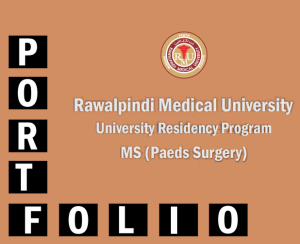
Portfolio
Paedtrics
Rawalpindi Medical University’s MD Pediatrics program offers comprehensive training in the care of infants, children, and adolescents. It includes core clinical rotations in general pediatrics, neonatology, pediatric ICU, and pediatric subspecialties such as cardiology, neurology, and endocrinology. Residents receive hands-on training in pediatric procedures, developmental assessments, and immunization programs. The program focuses on evidence-based medicine, child advocacy, and family-centered care. Graduates are capable of managing both acute and chronic pediatric illnesses and are encouraged to participate in research and community outreach programs to improve child health outcomes in Pakistan.
Plastic Surgery
RMU’s MS Plastic Surgery program is designed to cultivate surgical expertise in reconstructive, aesthetic, and burn surgery. The program provides exposure to a wide spectrum of procedures including trauma reconstruction, congenital anomaly correction, microsurgery, hand surgery, and cosmetic enhancements. Residents are trained in meticulous surgical techniques and patient-centered care through rotations in burn units, reconstructive wards, and cosmetic surgery clinics. The curriculum also includes training in wound healing, flap techniques, and tissue grafting. The program emphasizes innovation, ethics, and patient safety. Graduates are skilled in restoring form and function, improving quality of life for patients affected by trauma, congenital deformities, and malignancies.
Psychiatry
The MD Psychiatry program at Rawalpindi Medical University is a structured, multidisciplinary training program aimed at developing psychiatrists capable of addressing the growing mental health needs of the population. The curriculum integrates theoretical knowledge with clinical practice in general adult psychiatry, child and adolescent psychiatry, addiction psychiatry, forensic psychiatry, and psychotherapy. Residents are trained to diagnose and manage a wide spectrum of psychiatric disorders using pharmacological and non-pharmacological approaches. The program encourages active involvement in mental health advocacy, research, and community-based interventions. Through supervised practice and mentorship, trainees acquire the empathy, communication skills, and professionalism essential in the field of mental health. Graduates of the program are prepared for leadership roles in clinical psychiatry, teaching, and policy-making.
Urology
RMU’s MS Urology program is a specialized surgical training course focused on the urinary tract and male reproductive system. The program includes comprehensive training in endourology, reconstructive urology, uro-oncology, pediatric urology, and andrology. Residents acquire skills in modern diagnostic and surgical techniques such as TURP, PCNL, ureteroscopy, and laparoscopy. The curriculum emphasizes evidence-based urological care, research methodology, and interdisciplinary collaboration. Trainees participate in outpatient clinics, operating theatres, and procedural suites under expert guidance. Graduates emerge as technically skilled and ethically sound urologists capable of delivering high-quality urological care and contributing to academic excellence and innovation in urology.
University Residency Research Program (8 Step Model)
Introduction
Rawalpindi Medical University (RMU) has developed a strong culture of research and innovation, integrating it as a core component of its residency and postgraduate training programs. Through its dedicated Research Unit and Institutional Research Forum (IRF), the university provides structured guidance and ethical oversight for all research projects conducted by residents, faculty, and students. Residents receive comprehensive support in developing research proposals, designing studies, analyzing data, and preparing manuscripts for publication. Regular workshops on research methodology, biostatistics, and medical writing are held to enhance research skills. Every residency program at RMU includes a mandatory research component, requiring residents to submit and defend a thesis approved by the IRF and the Board of Advanced Studies and Research (BASR). The university’s research efforts emphasize community-oriented projects addressing prevalent local health challenges, and findings are often published in the Journal of Rawalpindi Medical College (JRMC), reflecting RMU’s commitment to fostering evidence-based medical practice and contributing to the advancement of healthcare in Pakistan.
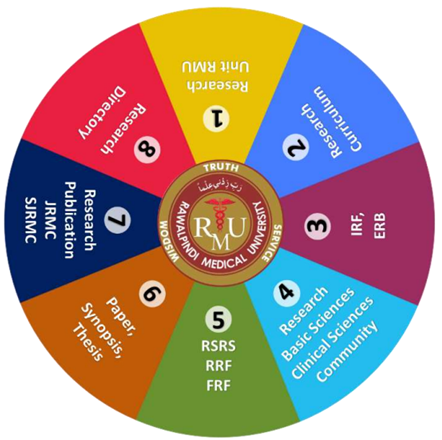
RMU Research Framework
Research Vision
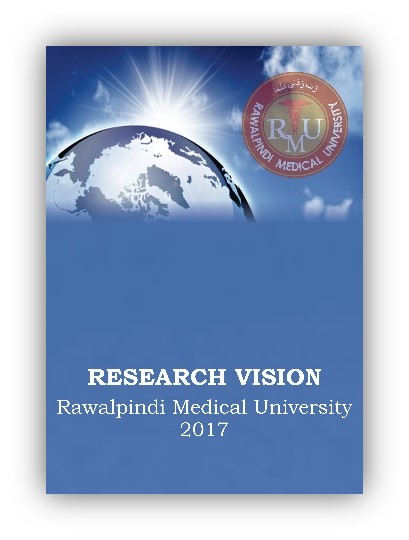
Research Vision
Dr. Faiza Aslam
Research Specialist
Department of Psychiatry
January 2018
This book contains all relevant details of Research Vision RMU including establishment of state of the art research unit at RMU, Research model of RMU Including community research, faculty research forum, resident research forum, and rawalians student research society. It also contains details of visitor research and research directories, Journal of RMC and other research activities at RMU.
Research Framework
Research Planner for 4 Year Programs
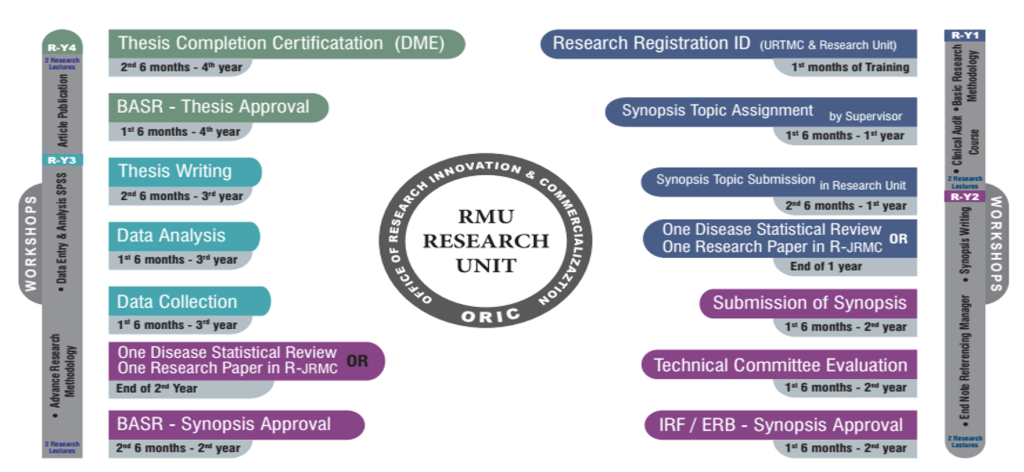
Research Planner for 5 Year Programs
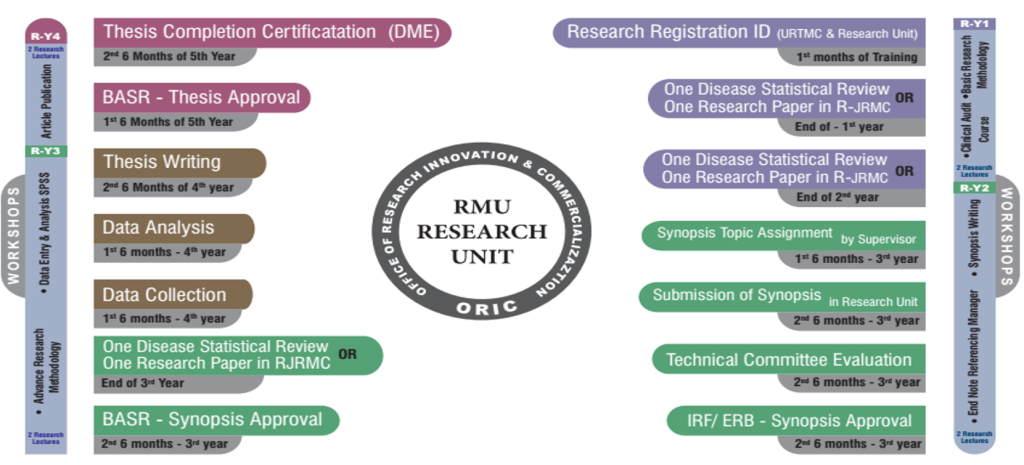
Research Plan
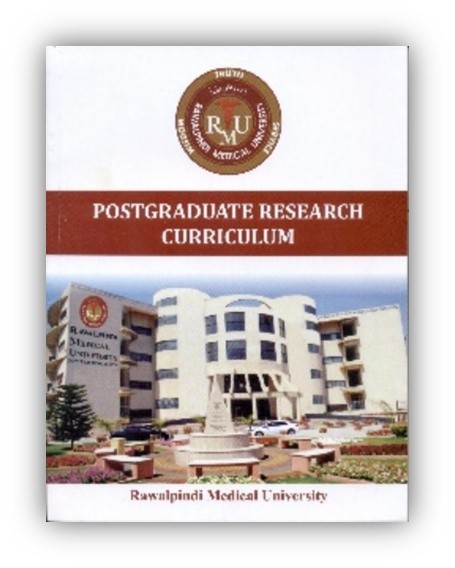
Postgraduate Research Curriculum
Prof. Muhammad Umar, Vice Chancellor
Prof. Hamama-tul- Bushra Khaar, Professor (Emeritus)
Dr Faiza Aslam, Research Co-Ordinator
April 2019
This curriculum document is meant for creating best research training opportunities for post graduate university residence in order to improve their decision making process for improved patient care based on evidence based practice this book give details of research training year wise including learning out comes , research workshops, participation in journal clubs, sessions, observation of institutional research ethics committee meeting, nomination of supervisor of the trainee for dissertation, undertaking clinical audit project, rotation of trainees of ORIC and evaluation & feedback of research course.
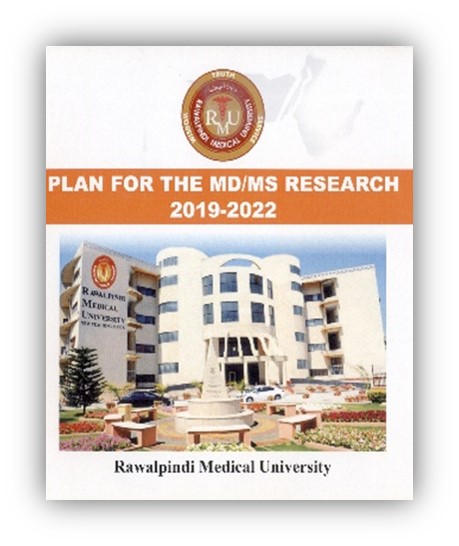
Prof. Muhammad Umar, Vice Chancellor
Prof. Hamama-tul- Bushra Khaar, Professor (Emeritus)
Dr Faiza Aslam, Research Co-Ordinator
April 2019
This book reflects the Gantt chart of year-wise activities of MD/MS trainees regarding research at RMU from 2019 – 22 it includes activities along with responsible sites for research activities including orientation session, log records, mapping of existing research capacities of trainees, evaluation of trainees through base line competence assessment proforma, rotation at ORIC, portfolio record, focus group discussion, final evaluation report and quality assurance of research course.
Research Electives
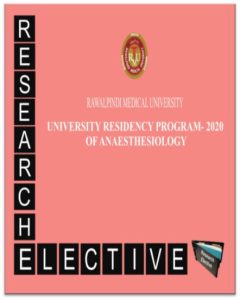
Anesthesiology Research Elective
January 2020
This book contains research elective log details for the residents in terms of attending basic research methodology workshops, undertaking clinical audits, institutional research and ethics forum meeting attended by the resident record of fortnightly meeting if the residents with the supervisor, records of residents rotation at ORIC, any other research course attended by the resident record of literature view conducted and record of menu script formulated by the resident in each year of trainin
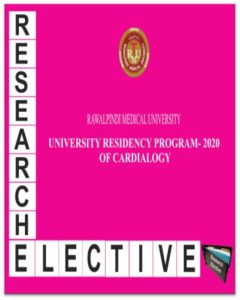
Cardiology Research Elective
January 2020
This book contains research elective log details for the residents in terms of attending basic research methodology workshops, undertaking clinical audits, institutional research and ethics forum meeting attended by the resident record of fortnightly meeting if the residents with the supervisor, records of residents rotation at ORIC, any other research course attended by the resident record of literature view conducted and record of menu script formulated by the resident in each year of training
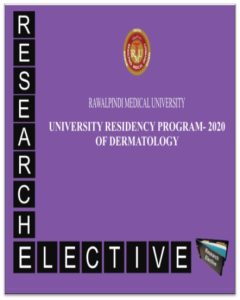
Dermatology Research Elective
January 2020
This book containsresearch elective log details for the residents in terms of attending basic research methodology workshops, undertaking clinical audits, institutional research and ethics forum meeting attended by the resident record of fortnightly meeting if the residents with the supervisor, records of residents rotation at ORIC, any other research course attended by the resident record of literature view conducted and record of menu script formulated by the resident in each year of training
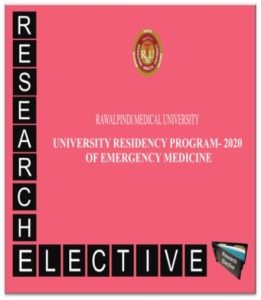
Emergency Medicine Research Elective
January 2020
This book contains research elective log details for the residents in terms of attending basic research methodology workshops, undertaking clinical audits, institutional research and ethics forum meeting attended by the resident record of fortnightly meeting if the residents with the supervisor, records of residents rotation at ORIC, any other research course attended by the resident record of literature view conducted and record of menu script formulated by the resident in each year of training.
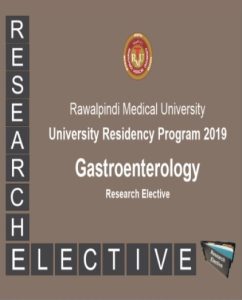
Gastroenterology Research Elective
January 2020
This book contains research elective log details for the residents in terms of attending basic research methodology workshops, undertaking clinical audits, institutional research and ethics forum meeting attended by the resident record of fortnightly meeting if the residents with the supervisor, records of residents rotation at ORIC, any other research course attended by the resident record of literature view conducted and record of menu script formulated by the resident in each year of training.
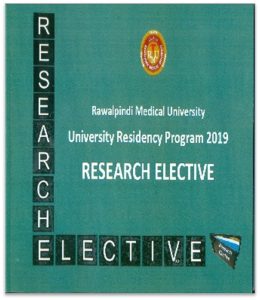
Medicine Research Elective
This book contains research elective log details for the residents in terms of attending basic research methodology workshops, undertaking clinical audits, institutional research and ethics forum meeting attended by the resident record of fortnightly meeting if the residents with the supervisor, records of residents rotation at ORIC, any other research course attended by the resident record of literature view conducted and record of menu script formulated by the resident in each year of training
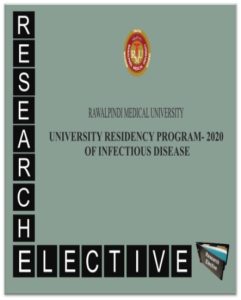
Infectious Disease Research Elective
January 2020
This book contains research elective log details for the residents in terms of attending basic research methodology workshops, undertaking clinical audits, institutional research and ethics forum meeting attended by the resident record of fortnightly meeting if the residents with the supervisor, records of residents rotation at ORIC, any other research course attended by the resident record of literature view conducted and record of menu script formulated by the resident in each year of training.
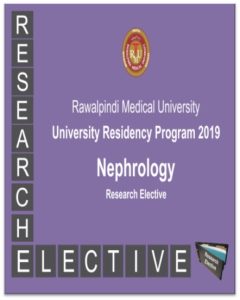
Nephrology Research Elective
January 2020
This book contains research elective log details for the residents in terms of attending basic research methodology workshops, undertaking clinical audits, institutional research and ethics forum meeting attended by the resident record of fortnightly meeting if the residents with the supervisor, records of residents rotation at ORIC, any other research course attended by the resident record of literature view conducted and record of menu script formulated by the resident in each year of training
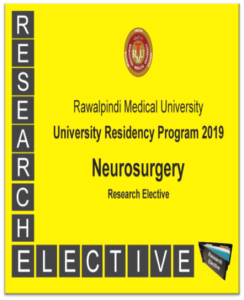
Neurosurgery Research Elective
January 2020
This book contains research elective log details for the residents in terms of attending basic research methodology workshops, undertaking clinical audits, institutional research and ethics forum meeting attended by the resident record of fortnightly meeting if the residents with the supervisor, records of residents rotation at ORIC, any other research course attended by the resident record of literature view conducted and record of menu script formulated by the resident in each year of training
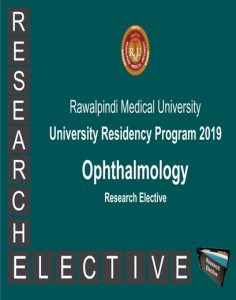
January 2020
This book contains research elective log details for the residents in terms of attending basic research methodology workshops, undertaking clinical audits, institutional research and ethics forum meeting attended by the resident record of fortnightly meeting if the residents with the supervisor, records of residents rotation at ORIC, any other research course attended by the resident record of literature view conducted and record of menu script formulated by the resident in each year of training.
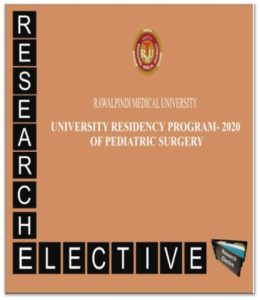
Pediatric Surgery Research Elective
January 2020
This book contains
research elective log details for the residents in terms of attending basic research methodology workshops, undertaking clinical audits, institutional research and ethics forum meeting attended by the resident record of fortnightly meeting if the residents with the supervisor, records of residents rotation at ORIC, any other research course attended by the resident record of literature view conducted and record of menu script formulated by the resident in each year of training.
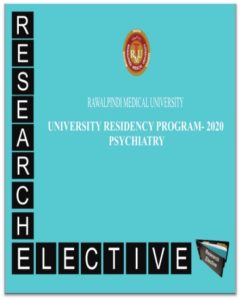
Psychiatry Research Elective
January 2020
This book contains research elective log details for the residents in terms of attending basic research methodology workshops, undertaking clinical audits, institutional research and ethics forum meeting attended by the resident record of fortnightly meeting if the residents with the supervisor, records of residents rotation at ORIC, any other research course attended by the resident record of literature view conducted and record of menu script formulated by the resident in each year of training
E-Residency
The RMU e-Residency Portal (PGT) is an innovative digital platform designed to streamline and enhance the postgraduate (PGT) student experience at Rawalpindi Medical University. This portal provides a centralized interface where students can access academic records, submit applications, track admissions, and manage various administrative tasks efficiently. By leveraging modern e-governance principles, the RMU e-Residency Portal ensures transparency, accuracy, and convenience, reducing the reliance on physical paperwork and manual processes. It also facilitates seamless communication between students, faculty, and administrative staff, allowing timely updates on academic schedules, examinations, and institutional notifications. Furthermore, the portal supports secure data management, safeguarding sensitive student information while providing authorized access to relevant stakeholders. By integrating technology into everyday academic operations, the RMU e-Residency Portal not only enhances operational efficiency but also empowers postgraduate students to take control of their academic journey with ease and reliability
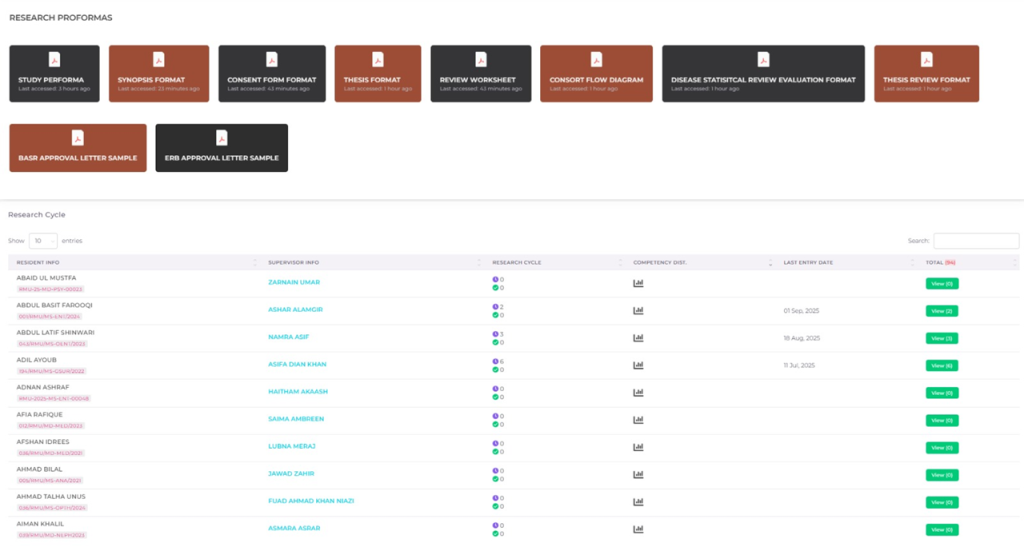
Research E-Log
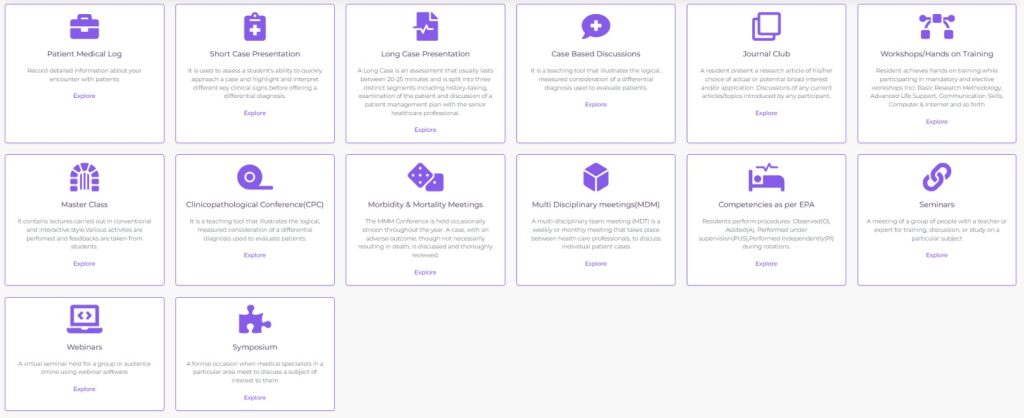
Rotational E-Log

General E-Log
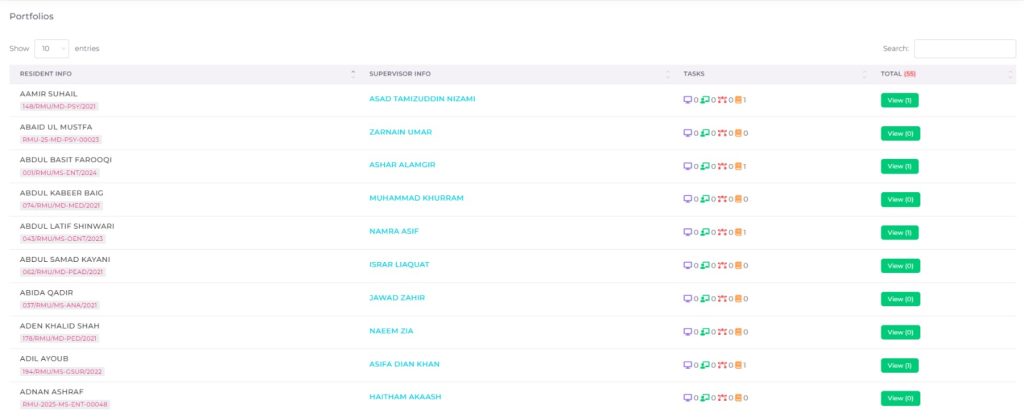
E-Portfolio
PGT Portal will provide users with faster and easier access to Logbook features while offering value-added content to increase session duration and reduce bounce rate. The advantages of E-Logbook are as follows:
- Quicker Access: The PGT Portal provides faster and easier access to Logbook features, improving user experience and increasing session duration while reducing bounce rates.
- Efficient Activity Recording: The E-Logbook enables postgraduate trainees to record both academic and clinical activities conveniently through a web-based platform.
- Interactive Monitoring: Unlike traditional logbooks, the E-Logbook offers interactive tracking and monitoring of continuous professional activities, enhancing oversight in residency programs.
- Policy Compliance: E-Logbook workflows and data distribution adhere to the Residency Program Policy and Curriculum, ensuring regulatory alignment.
- Data Security: Ensures data control and security, with no third-party access or risks of losing a manual logbook.
- Regular Backups: Managed data backups ensure that records are securely stored and retrievable.
- Improved Communication: Bridges communication gaps between residents, supervisors, and relevant committees, improving collaboration.
- Timely Corrections and Improvements: Allows residents to make timely adjustments and showcase improvements before submission deadlines, ensuring the on-time completion of training.
- Data Availability: The E-Logbook system is accessible around the clock for postgraduate trainees. Regular backups are scheduled at midnight by hosting providers, ensuring that user activity remains uninterrupted.
- Scalability: Currently tailored for MS/MD programs, the E-Logbook supports nearly 22 postgraduate training programs and can be expanded to include additional programs, helping trainees manage their academic and clinical data effectively.
- Optimized Document Management: The system manages user-specific files and documents efficiently. It uses optimized file handling techniques, such as reducing file size, storing file metadata in the database, and keeping actual files in a secure file directory.
- Flexible Business Model: The E-Logbook’s adaptable structure allows for easy addition, removal, or upgrade of modules, with the latest version designed to align with curriculum and program policy requirements.
- Robust Data Authentication: The user component of the E-Logbook system includes built-in registration and auto-login for new users. It also supports expansion for enhanced authentication options like email verification, password recovery, and roles/permissions based on future system requirements. Access Control Filters (ACF) are used to restrict access to certain actions, ensuring secure user-specific functionality.
- Research Verification Support: Trainees maintain clinical and academic records that can be reviewed by supervisors or committees. Role-based statistical dashboards enable both trainees and mentors to track and validate progress effectively.
- Dashboards: Multiple Dashboards offer a variety of Analytics for different roles which help them manage their data in an effciient way. The Dashboards include Admin, Supervisor, PG and Vice Chancellor’s Dashboard
Workshops
The University Research & Training Monitoring Cell (URTMC) at Rawalpindi Medical University (RMU) regularly conducts mandatory workshops for postgraduate trainees, M.Phil, and PhD scholars. These workshops are designed to strengthen research capacity, ensure compliance with ethical standards, and equip scholars with essential academic and professional skills. Core areas typically covered include research methodology, biostatistics, scientific writing, plagiarism awareness, reference management, good clinical practice, and bioethics. Participation in these sessions is compulsory, and successful completion is a prerequisite for approval of research proposals and thesis submission. By conducting these structured training programs, URTMC ensures that all researchers maintain high standards of academic integrity and contribute meaningfully to medical science.
Advanced Basic Life Support Course (6 CME)
This 3-day course is aimed at enhancing the emergency response skills of postgraduate trainees. The session encompasses Cardio-Pulmonary Resuscitation (CPR) techniques, airway management, and use of Automated External Defibrillators (AEDs). Residents participate in hands-on training and simulation-based exercises under the supervision of certified instructors. Emphasis is on the importance of timely intervention and teamwork in life-threatening situations. This activity is aimed at ensuring that all residents are competent and confident in providing immediate lifesaving care.
Communication Skills Workshop (6 CME)
This 3-day workshop is organized for university residents at Rawalpindi Medical University to enhance their professional interaction abilities and to improve doctor-patient communication, empathy, and teamwork in clinical practice. The workshop aimed to foster patient-centered care and strengthen the residents’ confidence in clinical communication. Interactive activities, role plays, and group discussions were conducted to simulate real-life scenarios. Experienced faculty members guided residents on handling difficult conversations and delivering bad news effectively.
Research Methodology & Biostatistics Workshop (6 CME)
This 3-day workshop is organized to build their capacity in scientific research. The workshop covered key topics including study design, data collection, sampling techniques, and statistical analysis. Participants gain hands-on experience with statistical software and data interpretation. Expert facilitators emphasize the importance of evidence-based research and ethical data handling. The session is aimed to equip residents with the skills needed to conduct, analyze, and publish high-quality research.
Synopsis Writing Workshop (6 CME)
This 3-day workshop is organized for university residents to strengthen their research and academic writing skills. The session provided detailed guidance on formulating research questions, objectives, and methodology. Faculty experts explain the structure, formatting, and ethical considerations of a high-quality synopsis. Residents participated in interactive discussions and received feedback on their research proposals. This activity is intended to enhance residents’ ability to develop scientifically sound and well-structured research synopses.
Assessments - ACGME Model


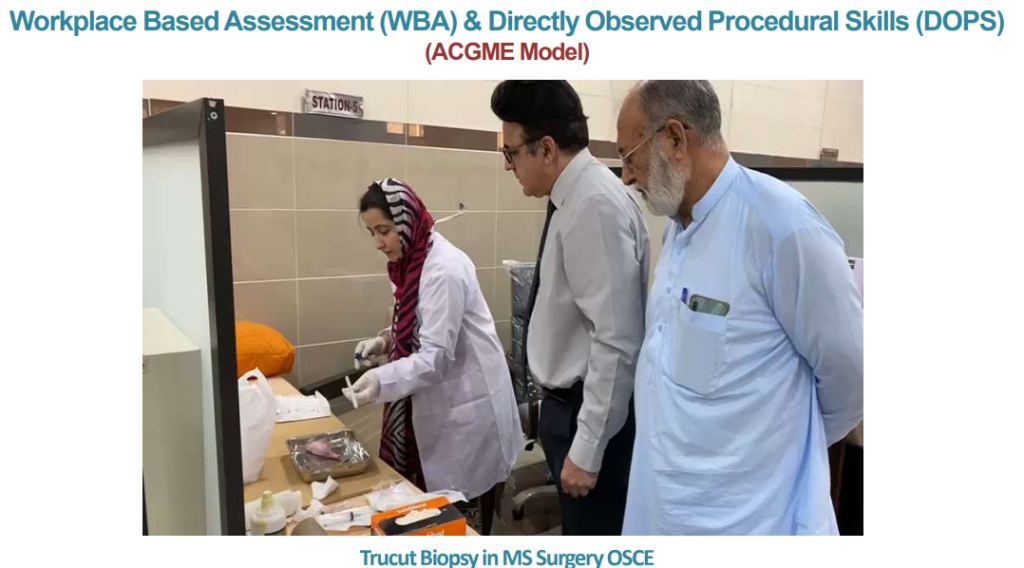
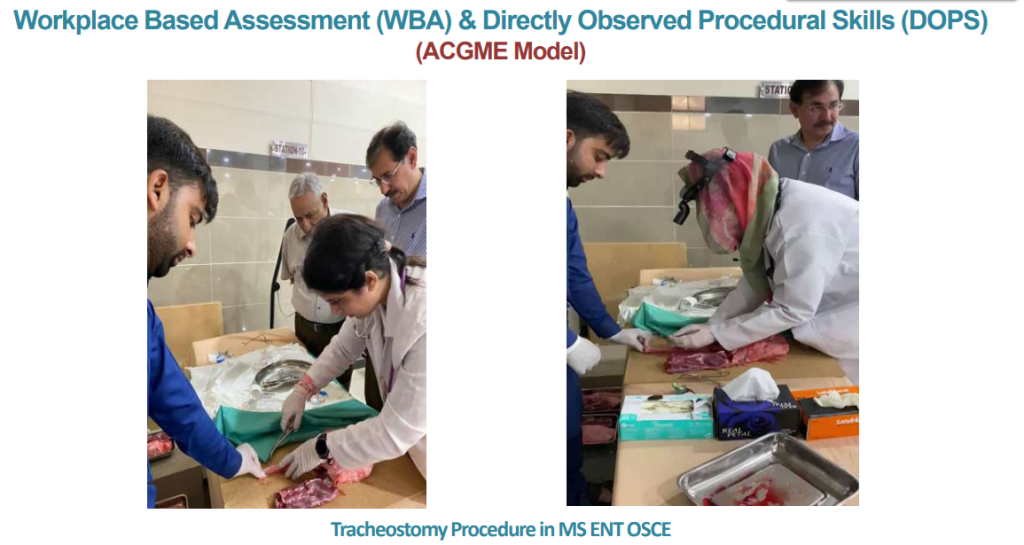
360 Degree Evaluations
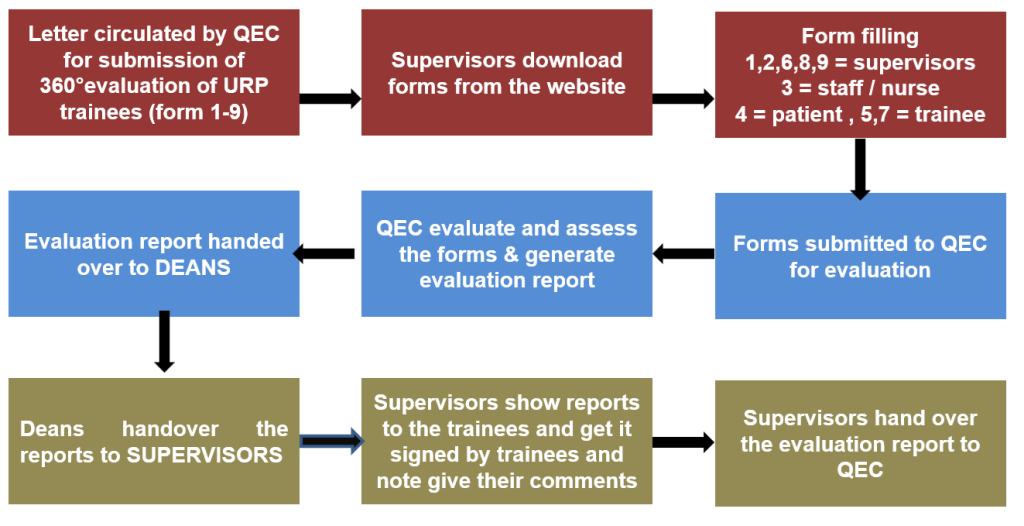
Evaluation Proforma
- Resident Self-Assessment
- Patient Medical Record / Chart Evaluation
- Patient Evaluation of Trainee
- Resident Evaluation by Nurse / Staff
- Case Based Clinical Evaluation of Trainee
- Direct Observation of Procedural Skills (DOPS)
- Mentor / Supervisor Evaluation of Trainee
- Final Evaluation Scoring sheet
- Resident/Fellow Evaluation of Faculty
360 Degree Evaluation Reports

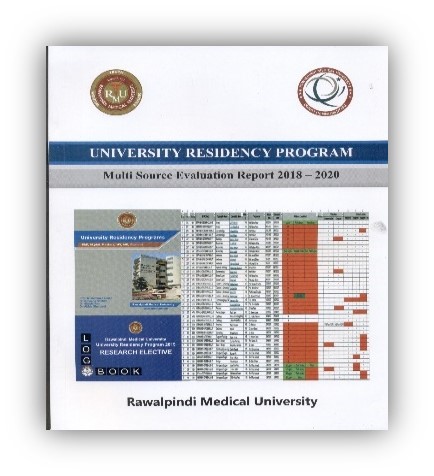
Dr. Rabbia Khalid
Assistant Director Quality Enhancement Cell
February 2021
This book gives details about quality enhancement cell, its functions, QEC tool box, and quality assurance model at RMU. This book gives detail regarding university residency program, its objectives, resident appointment, university training and monitoring cell (UTMC), logbooks, portfolios, curricula’s. this book also gives details about instructional strategies and assessments and evaluation with special emphasis on 360^ evaluation which comprises of nine Performa. .

Introduction
The Examination Department of Rawalpindi Medical University (RMU) is responsible for the planning, coordination, and conduct of all university examinations in line with established academic and regulatory standards. It ensures transparency, confidentiality, and integrity throughout the examination process—from scheduling and paper setting to result compilation and issuance of official transcripts and certifications.
For both undergraduate and postgraduate programs, including residency training, the department administers structured, competency-based assessments covering theory, OSCE, clinical examinations, and thesis evaluation. Through standardized procedures and continuous process improvement, the department upholds academic excellence and supports RMU’s mission to produce highly competent healthcare professionals.
